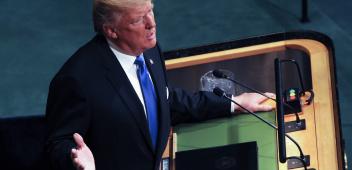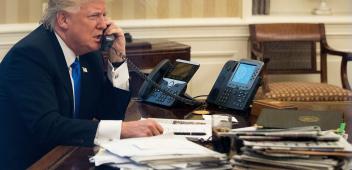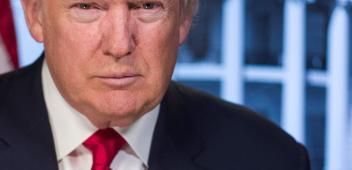Five lessons on leadership from FDR
In an opinion piece for the Wall Street Journal, Lowy Institute Executive Director Michael Fullilove outlines five important lessons on leadership from FDR.

Executive Summary
Franklin D. Roosevelt was the most important statesman of the 20th century. He saved American democracy from the Great Depression, led the Allies to victory over the dictators, won an unprecedented four consecutive elections, and did all this with a broken body.
So if we can’t learn any leadership lessons from his life, we’re not really trying.
Here are five.
First, keep your ends certain but your means flexible. In the period 1939-1941, Roosevelt transformed America from a divided and hesitant middle power into a global leader. He pushed isolationism to the margins of national life. He carried the country with him – and into the war.
Making this journey required great care and subtlety. FDR’s tactical shifts were ceaseless, yet behind them all a clear and inexorable direction can be discerned. To adapt his own metaphor, he steered his government like one of his beloved sailboats, tacking this way and that for advantage, sometimes drifting, but finally bringing her into his chosen port.
Second, you are usually stronger when you work through others. Paralyzed from the waist down by polio, Roosevelt was forced to rely, for political success and his very survival, on family, friends and aides.
In the lead-up to Pearl Harbor, he tapped five extraordinary men – well-bred diplomat Sumner Welles, Republican adventurer and future spymaster “Wild Bill” Donovan, social worker and fixer Harry Hopkins, GOP presidential nominee Wendell Willkie, and railroad heir Averell Harriman –and sent them on special missions to Europe that were crucial to the war and the American century that followed. These five envoys were the inspirations and instruments of FDR’s foreign policy.
Third, reach out to your opponents. The philosopher and wartime diplomat Isaiah Berlin observed that FDR believed in “flexibility, improvisation, the fruitfulness of using persons and resources in an infinite variety of new and unexpected ways.” Determined to neutralize the isolationist wing of the GOP, he raised up the great internationalist Republican, Wendell Willkie. Anybody, it seemed – even a former presidential rival – could be turned to Roosevelt’s purposes.
Fourth, curiosity is a good thing. Roosevelt’s method of government was unusual. He uncoupled the chains of command. He set aside protocols and created intersecting administrative empires. Often he allocated a single task to multiple people.
But there was method to this administrative madness. By seeking intelligence everywhere, he avoided capture by any one source. By setting his advisers against each other, he tested the strength of their arguments. By diffusing authority, he maintained control.
Finally, the most important leadership quality of all is courage. Roosevelt never allowed his disability to conquer him. Every day of his life, he demonstrated tremendous personal courage.
As poet William Ernest Henley declared in “Invictus,” a favorite of FDR’s:
It matters not how strait the gate,
How charged with punishments the scroll,
I am the master of my fate:
I am the captain of my soul



